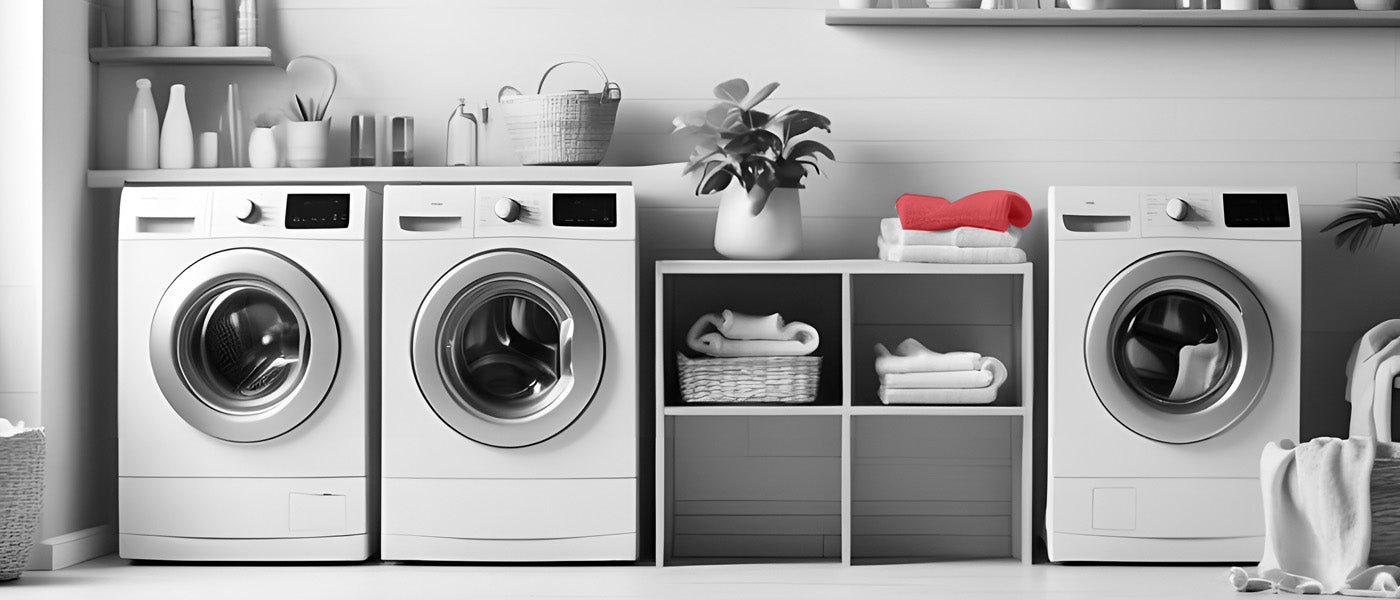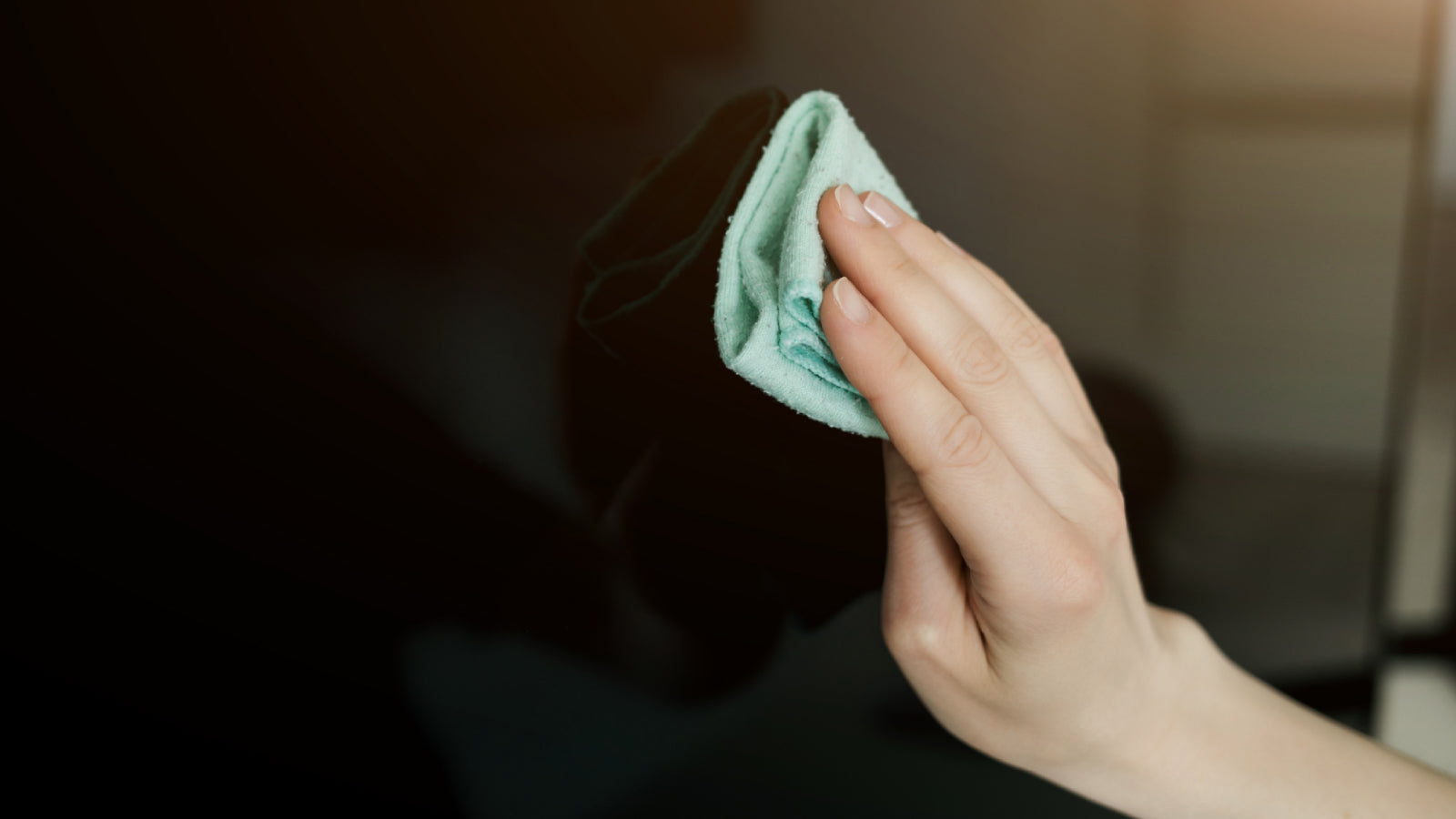A washing machine is one of those appliances we can't live without! So, you want to make sure you get the most out of your machine. Maintaining your machine will help to lengthen its lifespan, helping you save money. So, we have pulled together a few top tips for maintaining your machine.
Top 5 Tips for Maintaining your Washing Machine During and After a Cycle
- After your wash cycle has finished you should leave the door ajar to air. This will help to stop the build-up of mould and mildew within the machine. Just be sure to always monitor pets and children around your appliance.
- Try to remove your clothes as soon as possible after the wash has ended. This will also prevent the build-up of mould and will ensure that your clothes come out smelling fresh. Damp clothes that are left in a machine for an extended period can develop odours and crease badly. Try using the delay start function on your machine so the cycle ends just as you are ready to take it out.
- Wires, buttons and hooks on clothes can damage the drum and seals of your machine. When washing clothes remember to close zips and buttons. This will protect your machine and other clothing from damage. When washing underwire bras or curtains you should place the item inside a laundry bag or pillowcase and remove any loose hooks.
- Don't use too much detergent! Using excess detergent can leave residue on your clothes and in your washing machine drum. You'll notice this in quick washes especially. You should also clean out your detergent drawer frequently to keep your machine working at its best.
- Remember to clean the door seals of your machine. Your machine can start to develop mildew or mould underneath the seals as this is where dirt, detergent and excess water can get trapped. This mildew can then transfer onto your clothes or cause issues with the integrity of the seals over time. You should clean the seals regularly to stop this build-up from occurring.
Check out our wide range of washing machines and washer dryers at your local DID or online.
More Washing Machine Maintainance Tips
Regular maintenance of your washing machine can help it perform better and last longer. Here are some tips for maintaining your washing machine:
Keep it clean: Wipe down the inside of the machine regularly to remove any soap residue or dirt buildup. Also, clean the detergent dispenser and any other parts that may be susceptible to buildup.
Run cleaning cycles:Some washing machines have cleaning cycles built-in that help remove buildup and prevent odors. If your machine doesn't have this feature, run a cycle with hot water and a cup of white vinegar every few months to keep it clean.
Don't overload it: Overloading the machine can cause it to strain and not clean clothes effectively. Make sure you're not exceeding the recommended load capacity for your machine.
Check for leaks: Regularly check for leaks around the machine and its hoses. If you notice any leaks, address them immediately to prevent damage.
Keep it level:Make sure your washing machine is level to prevent it from shaking or moving during the spin cycle.
Follow the manufacturer's instructions: Follow the instructions in the machine's manual for maintenance and care specific to your model.
The Best Way to Clean your Washing Machine
Cleaning your washing machine regularly can help prevent buildup and odours, and keep it running smoothly. Here's the best way to clean your washing machine:
Run a cleaning cycle: Many washing machines have a cleaning cycle built in. If your machine has this feature, follow the instructions in the manual to run a cleaning cycle. If your machine doesn't have a cleaning cycle, run a cycle with hot water and a cup of white vinegar instead. This will help break down any soap residue or buildup.
Clean the detergent dispenser: Remove the detergent dispenser and clean it thoroughly with hot water and a brush. Make sure to remove any buildup or debris.
Wipe down the drum: Use a damp cloth to wipe down the inside of the drum and remove any residue or dirt. Pay special attention to any areas that may be prone to buildup.
Clean the door seal: The door seal can be a common area for mould or mildew to grow. Use a damp cloth to wipe down the seal and remove any buildup or debris.
Check and clean the filter: Some washing machines have a filter that should be cleaned regularly. Check the manual for your specific machine to see if it has a filter, and how to clean it if it does.
Leave the door or lid open: After each cycle, leave the door or lid open for a few hours to allow air to circulate and prevent mould or mildew buildup.
By following these steps regularly, you can keep your washing machine clean and running smoothly.
Washing Machine Maintenance FAQs
How often should I clean my washing machine?
It's a good idea to clean your washing machine every few months, depending on how frequently you use it. You can run a cleaning cycle with hot water and white vinegar, or use a washing machine cleaner designed specifically for this purpose.
Can I use bleach to clean my washing machine?
Yes, you can use bleach to clean your washing machine. However, it's important to dilute it properly and follow the manufacturer's instructions for your specific machine.
How do I prevent mould or mildew in my washing machine?
To prevent mould or mildew buildup in your washing machine, make sure to leave the door or lid open between cycles to allow air to circulate. You can also run a cleaning cycle with white vinegar or a washing machine cleaner.
How often should I replace my washing machine hoses?
It's a good idea to replace your washing machine hoses every 5-7 years, or sooner if you notice any signs of wear or damage.
What should I do if my washing machine is leaking?
If your washing machine is leaking, turn off the water supply and unplug the machine. Check for any visible leaks or damage to the hoses or machine itself. If you're not sure what's causing the leak, it's best to call a professional for help.











